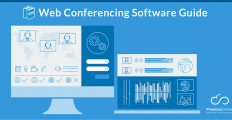The fintech sector is on the cusp of a thrilling transformation, ushered in by cutting-edge innovations and trends that are reshaping traditional financial services.
At the heart of this change are dynamic areas like artificial intelligence, embedded finance, cryptocurrency, blockchain technology, open banking, sustainability, and advanced security protocols. Embracing these fintech trends offers businesses a golden opportunity to harness the future’s potential.

The Future of Fintech: AI and Machine Learning Propelling Financial Services
Artificial intelligence and machine learning are now a key feature in the fintech industry. With more AI adoption, we’re seeing more advanced and accurate models and predictions. These technologies are set to become even more sophisticated in the future, and businesses well-equipped with the best small business resources are in a prime position to leverage these innovations.
Machine learning algorithms have also become a game-changer for fintech firms, offering powerful insights through predictive analytics. These tools are now crucial in economic forecasting, risk analysis, fraud detection, and more. As AI evolves, so do its capabilities. However, it’s important to balance this sophistication with ethical considerations to ensure inclusivity and bias mitigation.
In addition, it’s crucial not just to focus on advanced AI models but also to secure the technology behind them. Fintech companies must prioritize robust WiFi security measures to protect sensitive financial data and uphold the integrity of AI-driven processes.
Overall, AI and machine learning are significantly enhancing efficiencies and insights in fintech. They’re also broadening access to financial services. As we look ahead, their capabilities are set to grow even more.
Embedded Finance – The Quiet Fintech Revolution
Embedded finance seamlessly integrates financial services like banking and insurance into everyday online activities. This innovation is transforming the customer experience, allowing easy access to financial services on familiar platforms.
From retail to ridesharing and travel sites, various sectors are incorporating financial functions. This includes payment processing, credit facilities, rewards, and insurance. This approach not only enhances customer convenience but also opens new revenue avenues for businesses and deepens insights into consumer behavior.
By 2026, the embedded finance market is expected to soar to $138 billion globally, underscoring its role in reducing friction and boosting engagement in financial services. Yet, as embedded finance expands across various industries, addressing security and compliance issues is essential.
Regulatory Considerations
Embedded finance is rapidly transforming the business landscape, and with it comes an exciting opportunity for innovation and growth. As regulators are stepping up to the challenge, they’re working on creating robust frameworks that ensure consumer protection, data privacy, and security. This is great news! It means that as the industry evolves, we’ll have clear guidelines that support continuous innovation while keeping risks in check.
In this dynamic environment, businesses need to stand out, and choosing the right name can really make a difference. If you’re looking for that perfect name, there’s a handy name generator waiting to spark your creativity.
Globally, organizations like the U.S. Consumer Financial Protection Bureau are beginning to offer valuable guidance, but global coordination is still needed. By working together on an international level to align regulations, we can really drive forward responsible and groundbreaking innovations. With thoughtful and coordinated governance, the possibilities are endless.
Customer Identification Requirements
In terms of identification requirements, embedded finance is bringing some new challenges to the table, particularly around customer identification and Know Your Customer (KYC) protocols. This is a crucial step, especially when accessing financial products through non-financial companies where traditional ID checks might not always happen right at the start.
While this does bring risks like money laundering and other fraudulent activities into the picture, there’s a strong wave of positive action in the industry. Guidance and standards are developing, and the industry is not just waiting around – they’re actively creating reliable methods for customer verification within embedded finance. Leading the charge are companies like Mastercard, who are working on universal digital ID frameworks to address these concerns.
Crypto, Blockchain, and the Future of Fintech
Cryptocurrencies and blockchain technology are revolutionizing fintech, bringing a wave of fresh, innovative ideas. It’s incredible how much growth we’re seeing in the crypto exchange and trading platforms. This opens up opportunities for more people, from investors to those with side hustles, to get involved in this buzzing market. Plus, the transparency and security benefits of blockchain are crafting new ways for payments, lending, and more.
By storing data across decentralized networks, Blockchain is a bit like a digital fortress. This means we can trust and rely on our transactions without needing a middleman. It’s making financial dealings smoother and less costly. And there’s more good news! Developments like open banking and application programming interfaces (APIs) are making it easier than ever to access financial data and link up different institutions and services.
All these changes are broadening our choices, automating processes, shaking up traditional finance, and connecting our world more than ever. However, with greater digitization comes heightened cybersecurity threats, necessitating fortified security measures.
Sustainability – Making Fintech Eco-Friendly
Fintech is driving a sustainable shift in finance. This shift is marked by exciting developments in areas like green finance, social impact investing, and ESG (environmental, social, governance) reporting. These innovations are giving people the power to invest in environmental causes and make a real difference in their financial choices.
Moreover, the move towards digital solutions, such as mobile banking and automated processes, is reducing the environmental footprint of traditional financial services. This shift is cutting down on paper waste and lessening the need for physical infrastructure. Fintech companies are also doing their part by improving energy efficiency and investing in carbon offsets to minimize their carbon footprints.
In essence, sustainable fintech is catalyzing positive social and environmental change. It’s enabling investment in renewable energy and offering paperless banking options, making eco-friendly finance more accessible. Beyond finance, companies in various sectors can leverage fintech innovations, like IoT sensors and satellite data, to monitor and improve their ecological impact more effectively.
Cybersecurity: Securing the Future of Fintech
As fintech brings us amazing innovations, it’s also super important to stay on top of cybersecurity. With everything moving so fast in the digital world, keeping our financial data and privacy safe is more important than ever. Fintech companies are really stepping up to make sure our info is locked tight against any new cyber threats.
A big part of this safety net is having secure and reliable WiFi. It’s like having a strong, invisible shield that keeps our financial transactions and sensitive details safe as they zip through the air. Companies are teaming up with top-notch networking experts, like NETGEAR, to make sure their cybersecurity is as strong as it can be. This means we can all keep enjoying the cool stuff fintech offers, knowing our data is in safe hands.
There’s a lot of focus on making sure everything’s secure, from encryption to keeping an eye out for any fraud. This is crucial for protecting against things like identity theft and attacks that can disrupt services. With new areas popping up, like cryptocurrency exchanges and mobile payment networks, fintech companies are always on guard to keep these platforms safe.
WiFi isn’t just about staying connected; it’s also opening doors to new ways to earn free money online. But, as with all great things, it’s important to make sure the tech behind it is secure. Fintech might still be finding its feet, but by focusing on cybersecurity and always thinking about how to protect our privacy, the industry is building a trustworthy and safe space for everyone.
The Future of Fintech: What Lies Ahead
Fintech is not just transforming financial services; it’s redefining them. Innovations in AI, embedded finance, and sustainability are enhancing customer experiences. Yet, the journey ahead requires a balance of security, transparency, and inclusivity. The fintech sector stands poised to unlock extraordinary opportunities, driving financial access and empowerment across the globe while managing risks.






















Leave a comment!